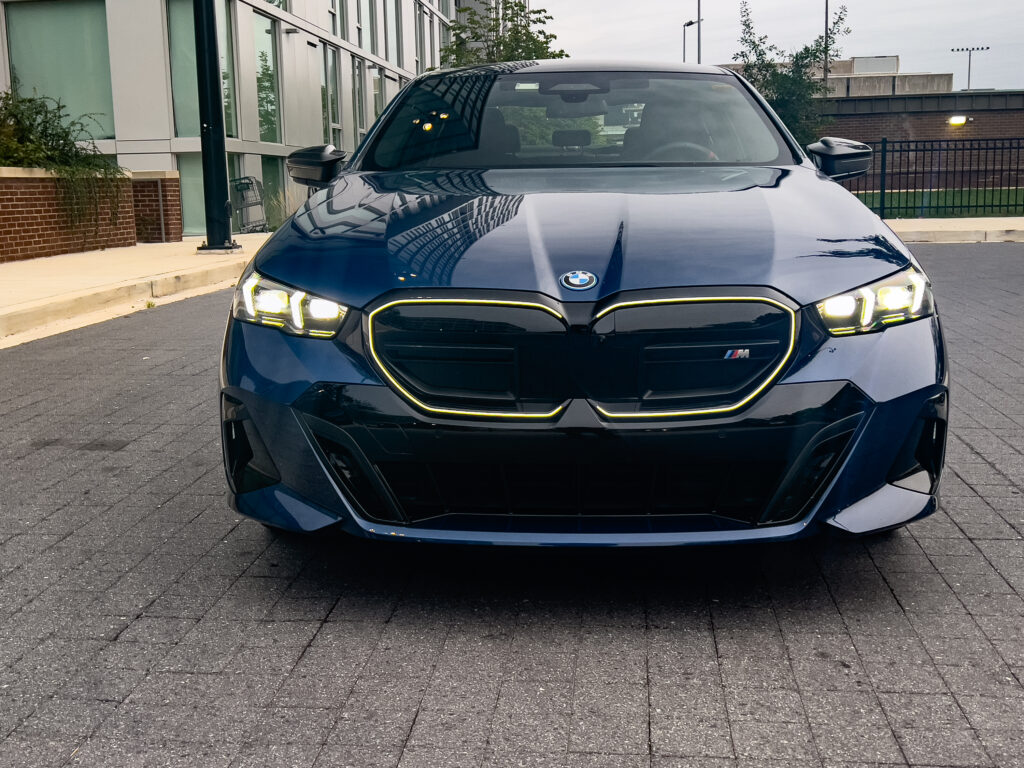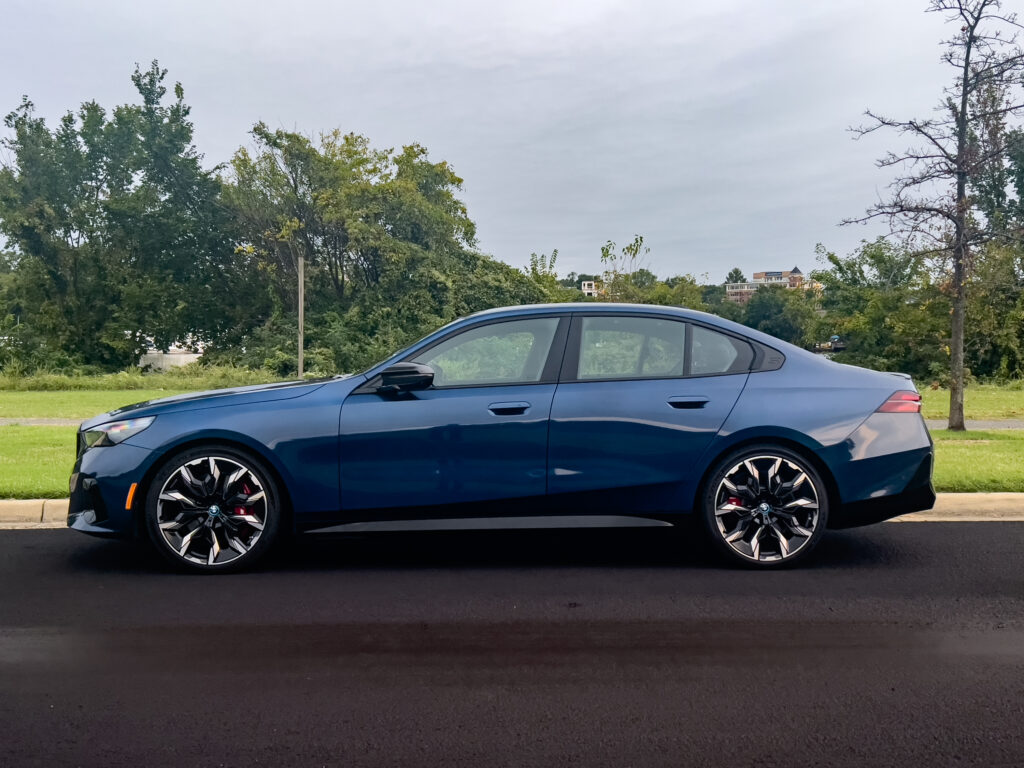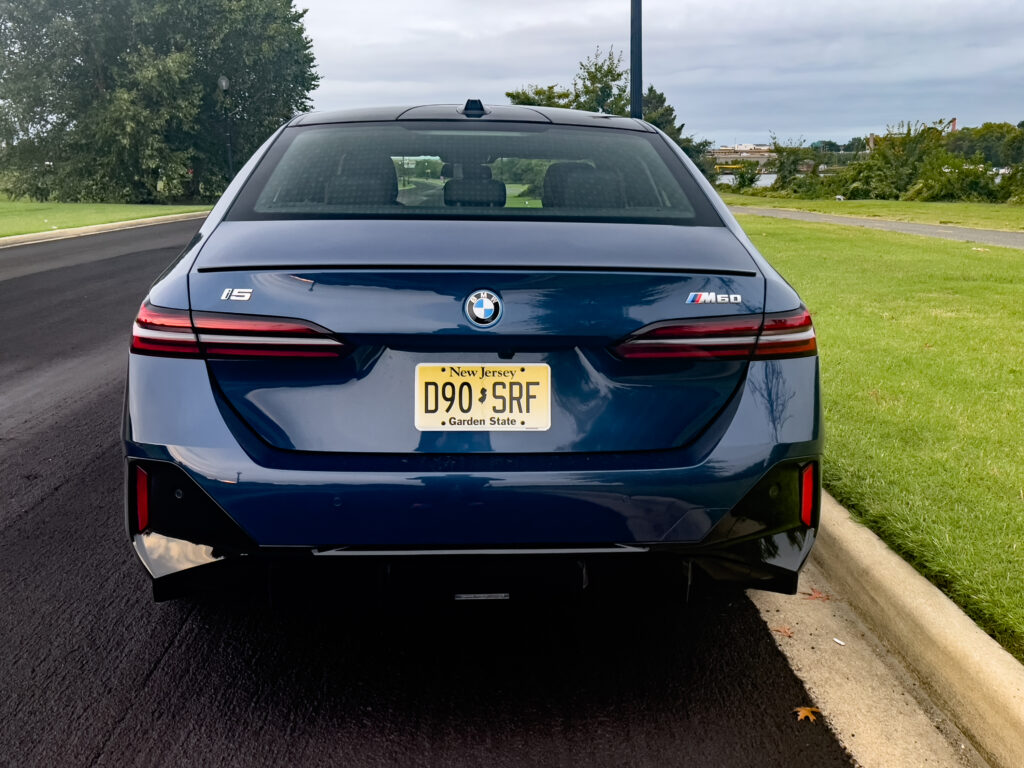- Регистрация
- 17 Февраль 2018
- Сообщения
- 28 644
- Лучшие ответы
- 0
- Баллы
- 2 093
Offline
Car people, like most flavors of enthusiasts, are often given over to ideological purity tests. Car X is better than car Y because it's naturally aspirated, not turbocharged. Hybrid Q is a pure series hybrid and is thus better than hybrid R, which sometimes operates as a parallel hybrid when that's more efficient. That kind of thing. And we definitely see that attitude when it comes to electric cars, with some people saying that a dedicated BEV will always be better than an electric version of a powertrain-agnostic platform. It's just that these kinds of purity tests rarely stand up when the actual rubber meets the road. That's true with today's car, the 2025 BMW i5 M60 xDrive.
When it was time for BMW to develop its fifth-generation EVs, it made more sense, as a smaller automaker, to create a vehicle architecture that could be equipped with internal combustion engines, plug-in hybrid powertrains, or a fully electric setup of battery plus electric motors. Purists will tell you this results in a lesser vehicle, but if that's true, why is the new i5 so much better than similar electric sedans from rivals like Mercedes, which use dedicated EV-only platforms?

In low-light conditions, the i5 M60's grille gets illuminated. Credit: Jonathan Gitlin

The i5 actually has a lower drag coefficient than the smaller i4. Credit: Jonathan Gitlin

The rear is rather reminiscent of the current Honda Accord. Credit: Jonathan Gitlin
Today's tester is the range-topping i5 M60 version, which boasts a hefty 593 hp (442 kW) and 586 lb-ft (795 Nm) from a pair of electrically excited synchronous motors fed by its 84.3 kWh (useable) lithium-ion battery pack. There's now a PHEV M5 that exceeds this battery EV in both performance and MSRP, but with a 0–60 time of 3.7 seconds and a starting price of $84,100–$95,395 as configured, the i5 M60 is still pretty superlative.
Read full article
Comments
When it was time for BMW to develop its fifth-generation EVs, it made more sense, as a smaller automaker, to create a vehicle architecture that could be equipped with internal combustion engines, plug-in hybrid powertrains, or a fully electric setup of battery plus electric motors. Purists will tell you this results in a lesser vehicle, but if that's true, why is the new i5 so much better than similar electric sedans from rivals like Mercedes, which use dedicated EV-only platforms?

In low-light conditions, the i5 M60's grille gets illuminated. Credit: Jonathan Gitlin

The i5 actually has a lower drag coefficient than the smaller i4. Credit: Jonathan Gitlin

The rear is rather reminiscent of the current Honda Accord. Credit: Jonathan Gitlin
Today's tester is the range-topping i5 M60 version, which boasts a hefty 593 hp (442 kW) and 586 lb-ft (795 Nm) from a pair of electrically excited synchronous motors fed by its 84.3 kWh (useable) lithium-ion battery pack. There's now a PHEV M5 that exceeds this battery EV in both performance and MSRP, but with a 0–60 time of 3.7 seconds and a starting price of $84,100–$95,395 as configured, the i5 M60 is still pretty superlative.
Read full article
Comments
